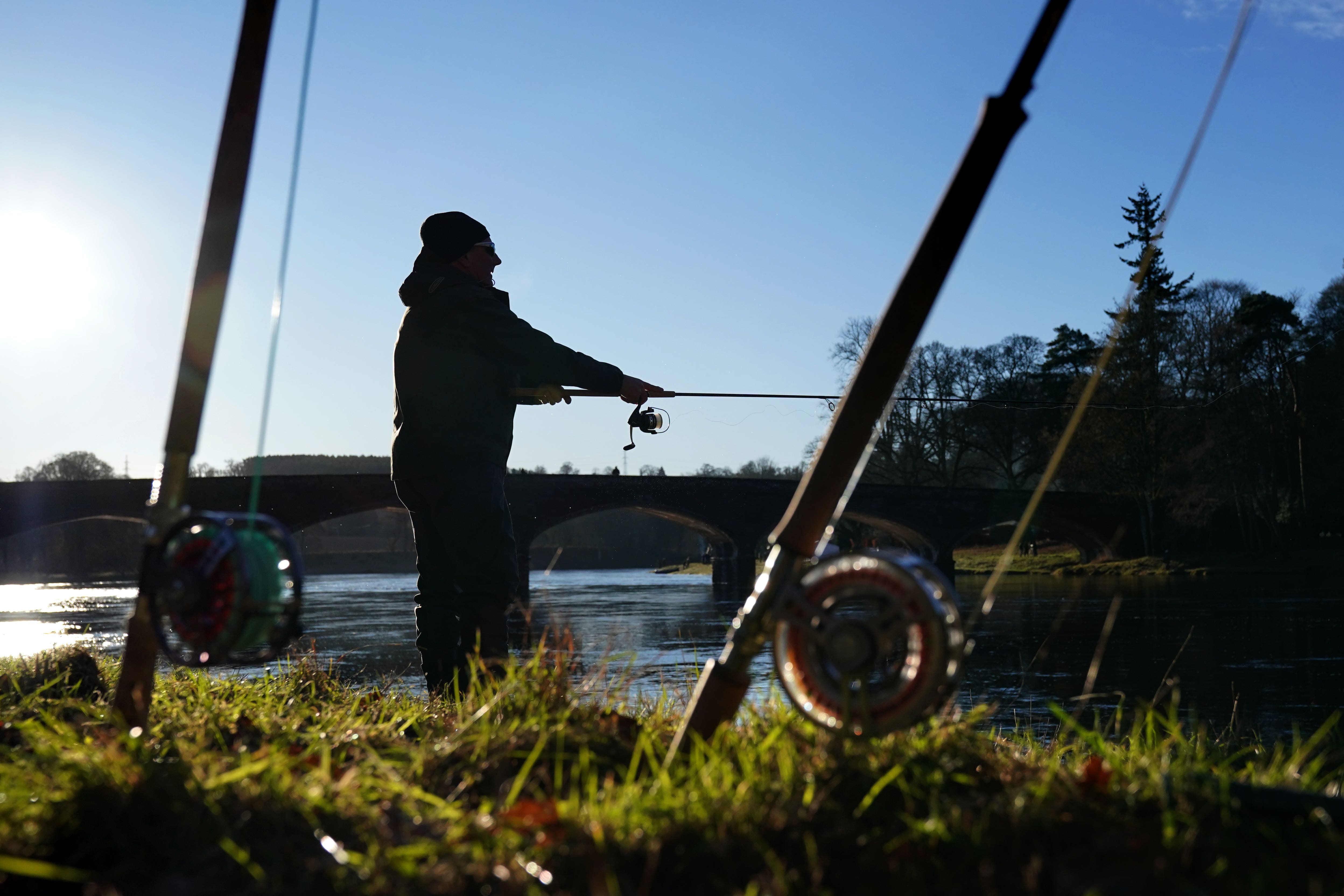New health advice issued to anglers amid sewage pollution concerns
Recommendations to avoid harmful bacteria and viruses in waterways include wearing protective clothing and not putting wet fishing lines in mouths.

Your support helps us to tell the story
From reproductive rights to climate change to Big Tech, The Independent is on the ground when the story is developing. Whether it's investigating the financials of Elon Musk's pro-Trump PAC or producing our latest documentary, 'The A Word', which shines a light on the American women fighting for reproductive rights, we know how important it is to parse out the facts from the messaging.
At such a critical moment in US history, we need reporters on the ground. Your donation allows us to keep sending journalists to speak to both sides of the story.
The Independent is trusted by Americans across the entire political spectrum. And unlike many other quality news outlets, we choose not to lock Americans out of our reporting and analysis with paywalls. We believe quality journalism should be available to everyone, paid for by those who can afford it.
Your support makes all the difference.Anglers have been issued new health advice on how to avoid becoming sick from sewage in England’s waterways.
The six steps to avoid contact with E. coli and other harmful bacteria include wearing protective clothing and closing your mouth if you fall in.
More than 440,000 hours of sewage was released along the nation’s coastline in 2023, according to last month’s analysis of Environment Agency data by campaign group Friends of the Earth.
Illnesses caused by contact with sewage pollution in rivers are increasingly common and of great concern
On Wednesday, the Angling Trust warned freshwater fishers against putting wet lines or tackle in their mouths.
They were also told not to drink the water if they fell in, and to shower “as soon as possible” if there was a chance it was infected.
Cuts and grazes should be covered with waterproof plasters and cleaned shortly after fishing, the non-profit organisation representing anglers in England added.
Washing hands with soap or sanitiser before eating after a session was also advised.
Anglers should not expect to become ill when they go fishing but water testing by clubs has revealed worryingly high levels of harmful bacteria and viruses which can present a significant risk to human health
Symptoms of gastrointestinal illnesses such as hepatitis A, salmonella, E. coli and giardiasis were also listed in the guide.
Following the recommendations could allow anglers to “continue to enjoy our wonderful sport”, the Angling Trust said.
Kris Kent runs the group’s Water Quality Monitoring Network initiative and said: “Illnesses caused by contact with sewage pollution in rivers are increasingly common and of great concern.
“Anglers should not expect to become ill when they go fishing but water testing by clubs has revealed worryingly high levels of harmful bacteria and viruses which can present a significant risk to human health.
We need to end the discharge of untreated sewage into our rivers and seas and adhere to the farming rules for water to stop the inappropriate spreading of slurry, both of which put anglers’ health at risk
“Excessive nutrient levels also contribute to algal blooms which can be highly toxic.
“We need to end the discharge of untreated sewage into our rivers and seas and adhere to the farming rules for water to stop the inappropriate spreading of slurry, both of which put anglers’ health at risk.”
Wider recommendations include taking care on steep banks, avoiding fishing near power lines and only wading when it is safe.
The Water Quality Monitoring Network tests samples from more than 200 rivers and plays a key role in the Angling Trust’s Anglers Against Pollution campaign.